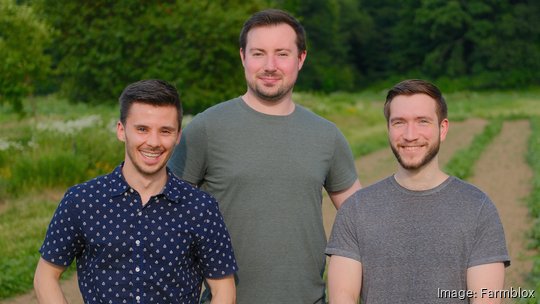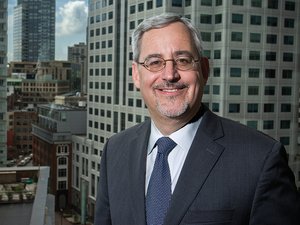
An agricultural monitoring startup has raised $2.5 million to expand from maple farms to vineyards and orchards in California.
Farmblox, a Boston-based company, was founded by three Worcester Polytechnic Institute alumni: Marc Printz, Nathan Rosenberg, and John Dyer.
The startup uses sensors attached to what it calls a "universal monitor box." Farmers can plug sensors into the box, and it communicates wirelessly with Farmblox’s base stations, which have up to a five-mile radius. Once the system is set up, farmers can monitor changes in soil moisture, soil temperature, leak detection, freeze risk, water usage, irrigation pressure, pump conditions, and weather conditions from their phones.
“We made Farmblox as a system for farmers to automate the most mundane things, like driving out an hour into your field to go check to see if your soil is, you know, being irrigated,” said Nathan Rosenberg, co-founder and CEO of Farmblox.
Currently, the Farmblox system is on 55 live maple farms covering more than 14,000 acres across the U.S. and Canada, and four pilot systems are on vineyards in California, according to Rosenberg.
- Sign up for The Beat, BostInno’s free daily innovation newsletter. See past examples here.
The seed-funding round was led by Boston venture capital firm Hyperplane, with participation from the Boston office of Slow Ventures, MHS Capital, and Service Provider Capital.
With its $2.5 million investment, Farmblox is looking to expand and also to integrate new AI features into its systems. It also hopes to expand its Waltham-based team from seven people now to 10 or 11 within the next six months, according to Rosenberg.
Rosenberg and his team are eyeing orchards and vineyards in California because they are what Rosenberg calls “permanent specialty crops” — crops that stay in the ground year-round and don’t need to be tilled, such as corn or soy. Because these remain in the ground for years, they make better candidates for the Farmblox system, he said.
As they prove the concept in one product, they plan to continue seeking expansion opportunities.
“We realized that all of agriculture has the same basic problems, just sensing very simple things,” Rosenberg said. “And so the product doesn't have to change at all to go into the other markets. Just what you're sensing might be a little different.”








